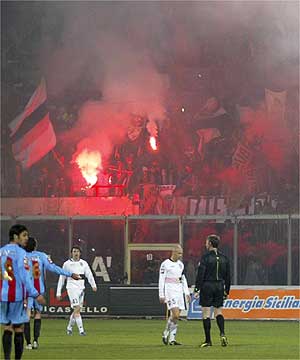Second of two parts. Part One is here.
Much of the Draft seems heavily influenced by the findings and recommendations of a USC/Annenberg School for Communication and Journalism study,”Public Policy and Funding the News.” It claims that the Internet and its blogging news reporters have benefited from government investment in development of the Internet, and will benefit again from TARPs I and II.
Long before the United States was founded, the Postal Service was subsidizing the news business. It was in good measure the free-mailing privileges conferred by many postmasters that allowed a robust network of colonial newspapers to emerge. George Washington wanted all newspapers, in fact, to have 100 percent subsidized mailing costs. The Postal Act of 1792 rejected the idea of a total subsidy, but it codified highly subsidized and extremely low rates. What brought a halt to publishers’ receiving 75 percent discounts on their mailed news products was the financial crisis that engulfed the Postal Service in the late 1960s.
It does not logically follow that if, historically, government had some role in the growth of news communications, it should “monitor” the “reinvention” of it by taking control of it. The Annenberg study offers recommendations as woozy and ill-defined as those in the Draft.
The study does not question a government role in journalism – the First Amendment to the contrary not withstanding. It does not specifically oppose regulation of any media. It makes the ambiguous suggestion that government ought “do no harm.” It seems to say: Wait until someone has a brilliant idea and a developed innovation; then you can jump in and control it for the “public good.”
The FCC is more obviously out to control speech — that is, to prohibit speech it deems offensive, specifically “hate speech,” and also thumb its nose at the Supreme Court’s Citizens United ruling concerning campaign finance and speech made during election times. But, as one blogger has pointed out, the protection of “hate speech” is what the First Amendment is all about. No one has ever taken exception to “love speech” or demanded that it be restricted or censored.
Fresh from having its ears boxed by a federal appeals court that denied the FCC had the authority to impose “net neutrality” on Internet carriers and providers, the FCC has decided to reclassify high-speed Internet access as a species of telecommunications that it has a mandate to regulate. That way, it can simply impose net neutrality.
The FCC is also mulling over the petition of various collectivist groups, the “National Hispanic Media Coalition” (NHMC), to “monitor” speech on the radio and on the Internet, with a “view” to regulating its content and intent. But, to regulate or banish “hate speech” — however defined — is to regulate or banish all speech.
NMHC’s Petition urges the Commission to examine the extent and effects of hate speech in media, including the likely link between hate speech and hate crimes, and to explore non-regulatory ways to counteract its negative impacts. As NHMC has awaited Commission action, hate, extremism and misinformation have been on the rise, and even more so in the past week as the media has focused on Arizona’s passage of one of the one of the harshest pieces of anti-Latino in this country’s history, SB1070.
There are forty-one more references to “hate speech” in the petition, the Future of Media and Information Needs of Communities in a Digital Age, while the phrase “hate, extremism and misinformation” appears four times. Nowhere in the petition are hate speech and misinformation defined. Their meanings are up for grabs by the most vocal and “victimized” communities (read tribes, groups, gangs).
And, there is no “non-regulatory way” to “counteract” any speech, hateful or not, not without the use of government force. “Counteraction” means action, which means force, which can be either withholding a radio station’s license, or pressure put on a station’s sponsors, or just Hugo Chavez’s thuggish way of “counteracting” hate speech.
“Intellectual freedom cannot exist without political freedom,” wrote Ayn Rand. “Political freedom cannot exist without economic freedom; a free mind and a free market are corollaries.” The current administration has made clear its attacks on intellectual freedom, political freedom, and economic freedom.
An attack on one has always implicitly meant an attack on the other two. This is what those who would defend the First Amendment must also understand. They must grasp that indivisible integration of freedoms. One cannot uphold freedom of speech to the exclusion of the other preconditions, as liberals have done for over a century, which is to uphold freedom of speech while advocating the seizure or control of property. Logical consistency required that they now attack what they once defended. Their more ideologically consistent and activist brethren on the Left are only too happy to oblige.


COMMENTS
Please let us know if you're having issues with commenting.